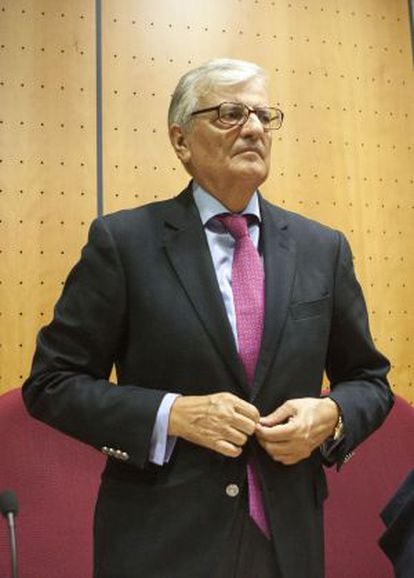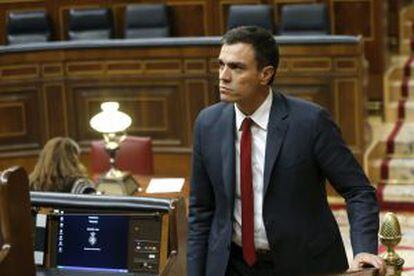State prosecutors postpone Catalan self-rule vote complaint
Attorneys are divided over who to target and what to charge them with

Proponents of legal action against the organizers of the November 9 ballot on Catalan self-rule will have to wait a bit longer.
Despite rumors that the Attorney General and the Catalan Attorney General were to file a complaint against Catalan premier Artur Mas and his aides on Wednesday, a meeting of top prosecutors has decided to postpone the move until the accusation can be made legally stronger.
Prosecutors are divided over who exactly should be targeted besides Mas, whose informal referendum on self-rule was suspended by Spain’s Constitutional Court.
The court also ordered all campaigning for the referendum to be halted until it reached an official decision on the constitutionality of a regional plebiscite on independence for the region.
When the Catalan leader decided to go ahead with the vote anyway, the conservative Popular Party (PP) said through its Catalan branch chief, Alicia Sánchez-Camacho, that Mas would soon be slapped with a formal complaint by the Attorney General’s Office, and even detailed the crimes of which he would be accused.
The statement sparked concerns about the impartiality of state prosecutors, who earlier this week complained that the government had been interfering with their work in order to speed up action against the instigators of the poll.
Although legal sources confirmed that a complaint was being readied, the decision is now being postponed because of a lack of consensus among prosecutors regarding who to target and what exactly to charge them with.
Attorney General Eduardo Torres-Dulce on Thursday appeared to leave the matter in the hands of Catalan Attorney General José María Romero de Tejada when he issued a short press release stating that the latter would inform him about “the decision he adopts within the framework of legality and impartiality.”
Legal sources said that if a complaint was finally filed, it would likely be against Mas and his deputy Joana Ortega for alleged crimes of disobedience and perverting the course of justice, although other officials and individuals could also be included.
Investigators may have a hard time finding out exactly who helped organize the vote, as the Catalan government has already begun destroying all information on the volunteer registration database that recorded the names of the thousands of people who stepped forward to help with the poll.
Regional authorities had deliberately requested citizen assistance to organize the vote in a bid to bypass the legal suspension on all official referendum-related activities.

Mas himself said on Wednesday that starting legal action against him could be counterproductive. “Can you imagine the image the world would get if a government was targeted for putting out ballot boxes? It would be a shocking image for Spain.”
And while Prime Minister Mariano Rajoy appeared before the media on Wednesday to announce that his government would not budge an inch from its position after the “failure” of last Sunday’s vote, Mas was not even watching.
Instead, he had his picture taken inside the regional Catalan assembly, as if to say that neither would he be budging from his plans, no matter what the central government says or does.
The Catalonia premier, of the moderately nationalist CiU bloc, was scheduled to meet with other pro-sovereignty parties on Thursday, as well as the Catalan Socialists, to discuss the possibility of early regional elections that would function as a popular plebiscite by gauging people’s support for the independence drive.
But his CiU group wants to make sure all pro-independence parties run together in one grand nationalist coalition, a possibility that is far from certain. A recent voting intention poll showed that early elections would be won not by CiU but by the Catalan Republican Left (ERC), a more aggressively secessionist party whose leader Oriol Junqueras wants to declare independence unilaterally.
Can you imagine the image the world would get if a government was targeted for putting out ballot boxes? It would be a shocking image for Spain”
Catalan premier Artur Mas
Meanwhile, Spain’s main opposition party, the Socialists, is trying to figure out what its next steps should be given the apparently irreparable rift between the central and Catalan governments.
The Socialists’ official position has been to reject Catalan independence, like the PP, and instead suggest that Spain needs to be restructured into a looser federation that would grant greater powers to the regions. But so far party leaders have failed to provide any details of what this “federal Spain” would look like.
A meeting between Socialist secretary general Pedro Sánchez and regional leaders on Tuesday seemed to support continuing along these deliberately vague lines to avoid their position being rejected by the PP and the Catalan nationalists alike.










































